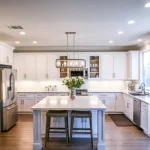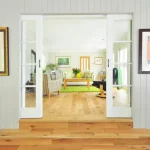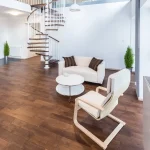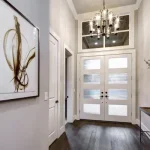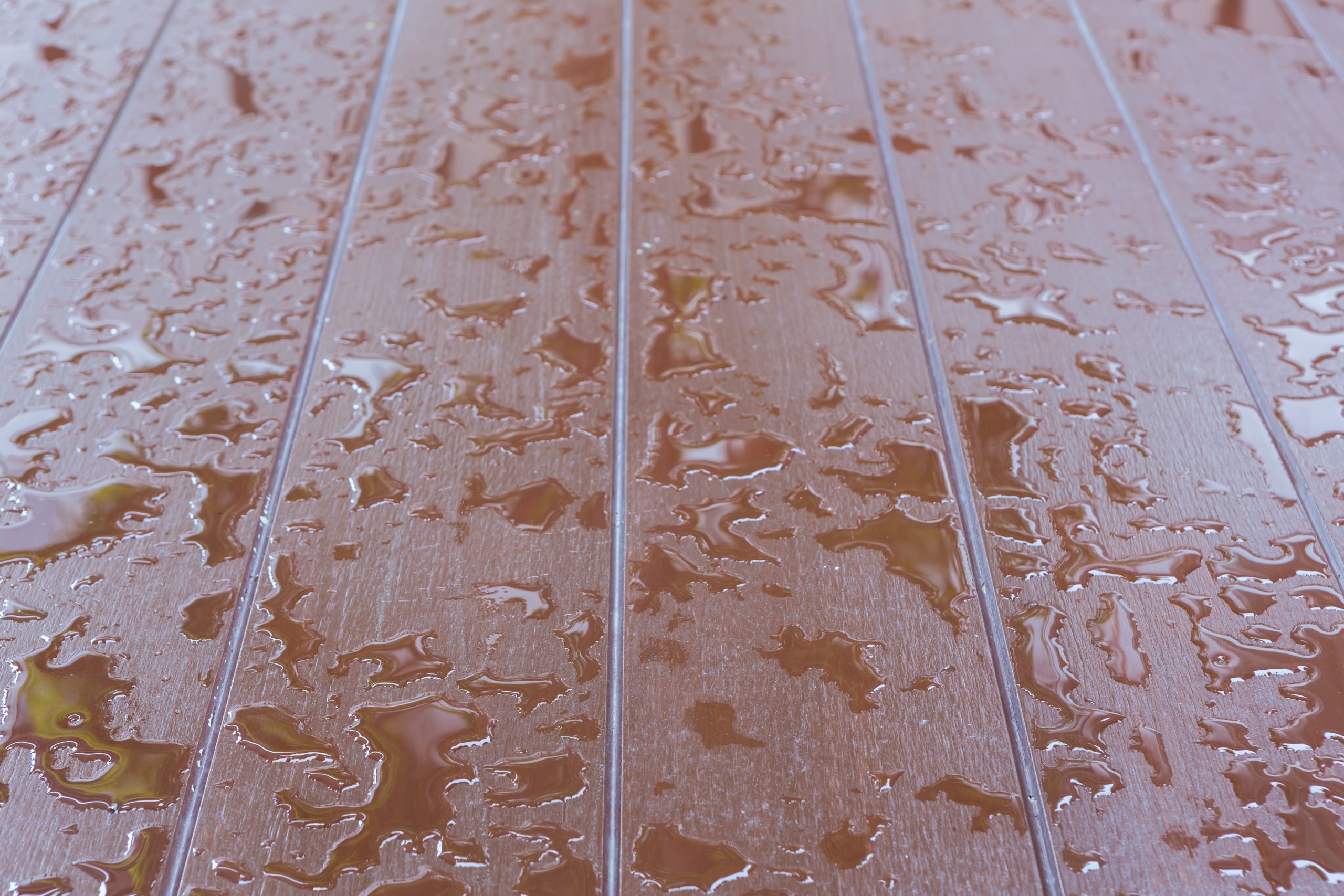
Hardwood Floors in Humid Areas: What You Need to Know
Installing hardwood flooring is a popular choice among homeowners due to its beauty, durability, and timeless appeal. However, for residents of Norwalk, Stamford, Greenwich, and other nearby cities, humidity can be a significant concern when it comes to maintaining hardwood floors. In this guide, we’ll explore how humidity affects hardwood floors, the best types of wood for humid climates, and tips for preventing damage to your flooring.
How Humidity Affects Hardwood Floors
Hardwood is a natural material that responds to changes in its environment, especially in areas with fluctuating humidity levels. Understanding how humidity affects hardwood flooring is essential for preventing damage.
1. Expansion and Contraction
- Wood absorbs and releases moisture depending on the relative humidity in the environment. When humidity levels are high, wood absorbs moisture from the air, causing it to expand. Conversely, when humidity drops, wood releases moisture, leading to contraction.
- In areas like Greenwich and Westport, where humidity can be high during summer and low in winter, this cycle of expansion and contraction can cause gaps, cupping, or buckling in hardwood floors.
2. Cupping and Crowning
- Cupping occurs when the edges of a wood plank are higher than its center, usually caused by excessive moisture below the flooring. This is a common issue in coastal areas like Stamford or Darien, where homes are more prone to humidity changes.
- Crowning is the opposite of cupping, with the center of the plank being higher than the edges. This often happens when the floor surface absorbs moisture, typically due to high indoor humidity levels or water spills left unattended.
3. Buckling
- Buckling is one of the most severe forms of moisture damage, where the hardwood planks lift from the subfloor. This can happen in extreme cases of flooding or when humidity levels rise rapidly and remain high for extended periods, which can be common in coastal areas like Norwalk.
Best Types of Hardwood for Humid Areas
Not all hardwoods are created equal when it comes to resisting humidity. Here are some of the best options for humid environments:
1. Engineered Hardwood
- Engineered hardwood is more stable than solid wood because of its layered construction. The top layer is real wood, while the underlying layers are made of plywood or other materials designed to resist moisture.
- This makes engineered hardwood a great option for homeowners in Fairfield County, as it can withstand the humidity fluctuations typical in Stamford, Darien, and other nearby areas.
2. Hardwood Species
- Some hardwood species are better suited for humid climates due to their density and moisture resistance:
- Oak: Oak is a popular choice for its strength and ability to handle humidity fluctuations. It’s available in both solid and engineered forms, making it versatile for installation in various parts of the home.
- Hickory: Hickory is one of the hardest domestic woods, making it highly resistant to dents, scratches, and humidity changes.
- Teak: Known for its natural oil content, teak is naturally resistant to moisture, making it ideal for coastal homes in Greenwich or Westport.
3. Pre-Finished vs. Site-Finished
- Pre-finished hardwood has a factory-applied sealant, making it more resistant to moisture. This makes it a better choice for humid areas, as the sealant helps protect the wood from absorbing moisture.
- Site-finished hardwood, while still a good option, may not offer the same level of moisture protection as pre-finished wood, especially during the initial days of installation.
How to Protect Hardwood Floors in Humid Areas
Preventing damage from humidity is key to keeping your hardwood floors in top condition. Here are some tips:
1. Maintain Indoor Humidity Levels
- Keeping indoor humidity between 30-50% can prevent significant expansion or contraction of the wood. In the humid summers of Norwalk and Greenwich, using a dehumidifier can help maintain optimal levels. In winter, a humidifier can prevent wood from drying out and contracting.
- Installing a whole-house humidification system can be particularly effective in coastal areas like Stamford or Westport.
2. Proper Ventilation
- Ensure your home has proper ventilation, especially in high-moisture areas like kitchens, bathrooms, and basements. Use exhaust fans to help reduce humidity levels quickly and effectively.
3. Install a Moisture Barrier
- When installing hardwood in basements or moisture-prone areas, use a moisture barrier beneath the wood to protect against rising dampness. This is especially recommended for homes in Fairfield County, where humidity levels can be high throughout the year.
4. Use Area Rugs and Mats
- Place area rugs or mats in high-moisture areas like near entryways, kitchens, and bathrooms. This will help absorb excess moisture and protect the hardwood from water exposure.
5. Wipe Up Spills Immediately
- Promptly cleaning up spills is crucial to prevent water from seeping into the wood. Use a dry or slightly damp cloth to absorb the spill, and never let water pool on the surface.
6. Apply a Protective Sealant
- Applying a water-resistant sealant can offer an extra layer of protection against moisture. Consider polyurethane finishes, which create a durable, moisture-resistant barrier.
7. Consider Engineered Hardwood
- If you’re worried about the impact of humidity but still want the look of hardwood, opt for engineered hardwood, which offers greater stability in humid conditions.
Why Choose Hardwood Floors LLC for Humidity Protection?
At Hardwood Floors LLC, based in Norwalk, CT, we understand the challenges of installing and maintaining hardwood floors in humid areas. We serve homeowners in Stamford, Greenwich, Westport, Darien, and surrounding cities, offering tailored solutions to ensure your floors look great and last for years.
Our Services Include:
- Expert installation with moisture barriers for added protection
- Engineered hardwood options designed for humid climates
- Refinishing and sealing services to protect your floors
Contact Us:
- Location: Norwalk, CT
- Phone: (203) 913-4209
- Website: www.hardwoodfloorsllc.com
If you’re concerned about the impact of humidity on your hardwood floors, contact us today for a consultation.
Final Thoughts: Protecting Your Investment in Humid Conditions
Hardwood flooring is a worthwhile investment, even in humid climates like those in Fairfield County. By choosing the right wood species, maintaining indoor humidity, and using protective measures, you can ensure that your hardwood floors stand up to the challenges of a humid environment.
If you’re considering hardwood flooring for your home in Norwalk, Stamford, or surrounding areas, reach out to Hardwood Floors LLC for expert guidance and services tailored to your needs.


